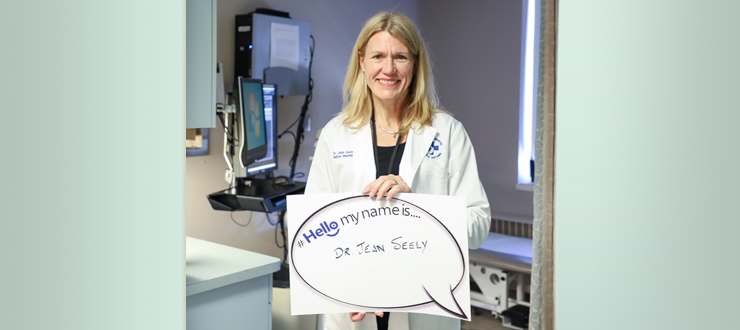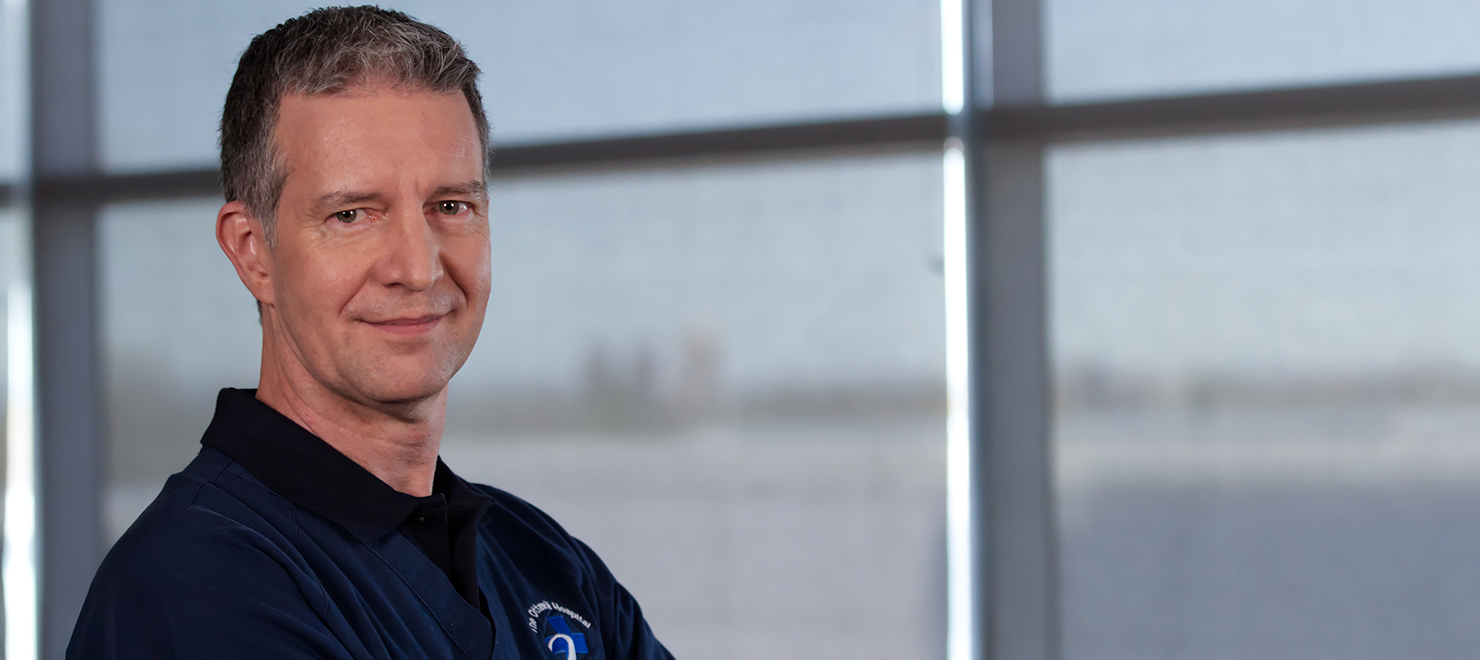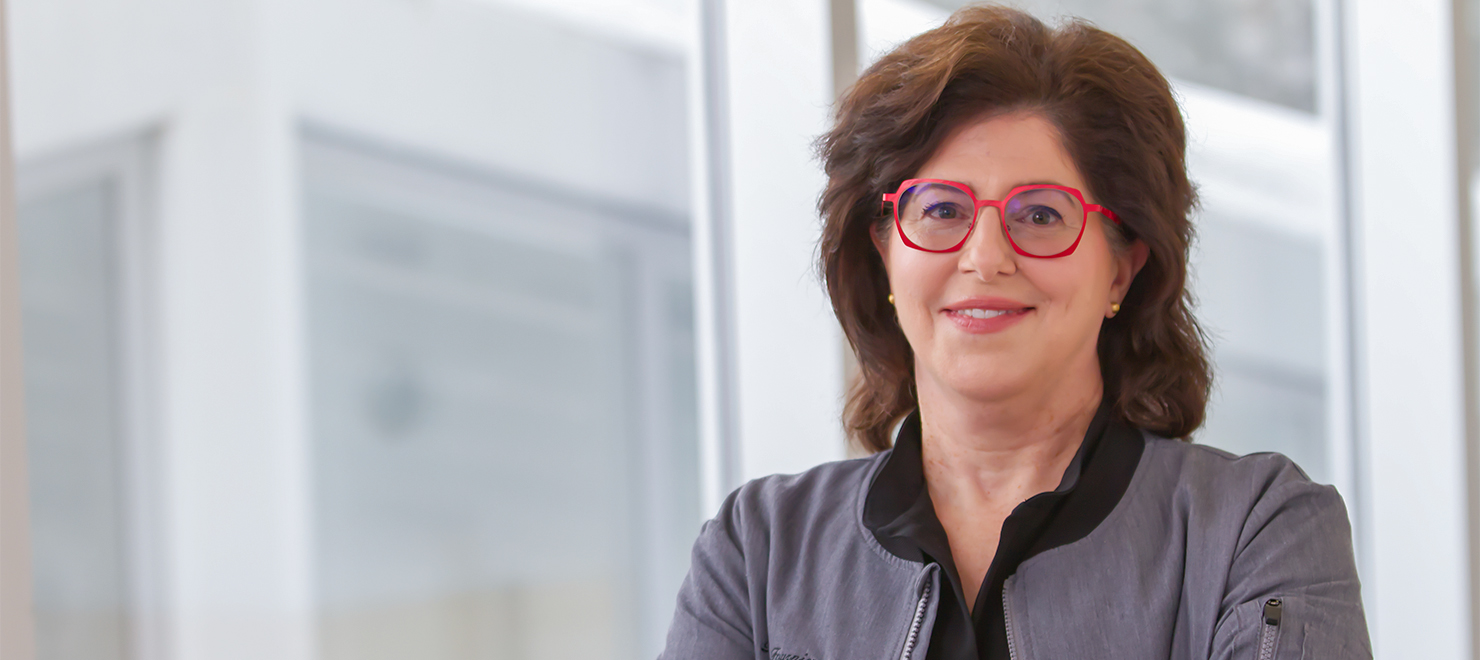
Dr. Jean Seely is one of the many doctors who helps patients through cancer treatment at The Ottawa Hospital.
When Brenda went for what she thought was a routine mammogram, her mind was elsewhere. It was just weeks after her mother had passed away, and she was thinking about the celebration of life.
When the doctors told her they found something irregular, Brenda (who did not want her last name included) wasn’t sure what to do next. Thankfully, Dr. Jean Seely, head of breast imaging at The Ottawa Hospital, was there to go over all the possible next steps.
“I was given options, such as having a biopsy, but I had so many questions,” said Brenda. “After Dr. Seely outlined everything I needed to know, I decided that a biopsy was the right move.”
By now, many women and men are aware that breast cancer is the leading cancer among women over age 35. One in eight women will get breast cancer in her lifetime. One in 25 will die from it.
But did you know that 20 percent of all breast cancers were noninvasive? Did you know that screening can help detect these cancers before they become invasive?
What Brenda’s screening found was very small. After the biopsy and a surgery to remove the remaining cells, her treatment was complete. Throughout what was a very stressful time, Brenda credits the entire health care team for helping her through the ordeal.
“Going into my first meeting with my surgeon, I was anxious and overwhelmed. Afterwards, I felt confident and much better about my situation,” she said.
Brenda’s cancer is known as DCIS – ductal carcinoma in situ. It’s a noninvasive form of breast cancer that makes up about 20 percent of all breast cancers. DCIS is often found through screening. It becomes invasive and progresses about half the time. The earlier it is found, the faster treatment can start, and the less likely it is to become invasive. This also means that the treatment will be less aggressive for the patient.
Dr. Seely invites anyone who hasn’t been screened to schedule a mammogram every one to two years. If someone has noticed changes in their body, they should schedule a mammogram but let their doctor know so that a more specialized mammogram, called a diagnostic mammogram, will be done.
“Our goal is to pick up a breast cancer before it is felt,” said Dr. Seely. “If you notice something different about your body, or haven’t been screened in a while, make that appointment. The importance of early detection in cancer cannot be understated. The earlier it is found, the faster treatment can start, and the higher the likelihood of a positive outcome.”
The Ontario Breast Cancer Screening Program has 14 sites throughout the Champlain region. Residents have many options to schedule screenings or appointments with experts. During Breast Cancer Awareness Month, The Ottawa Hospital is encouraging everyone to pay attention to their body, and ask their doctor questions if something feels off. It could end up being the decision that saves your life.

Support patient care and research at
The Ottawa Hospital
You might also like…
Aging well: Guidance for older adults
In this special video series for both older adults and their loved ones, geriatric care specialists from The Ottawa Hospital offer guidance on navigating common health-care challenges that may arise with aging.
How to stay safe around water this summer
Drowning can happen to anyone — even strong swimmers. Emergency physician Dr. Christian Vaillancourt debunks common myths about drowning, explains how to act quickly to save a life, and shares what you can do to keep yourself and your loved ones safe around water.
What’s the difference between an optician, optometrist, orthoptist and ophthalmologist?
“Do I need to see an optician, optometrist, orthoptist or ophthalmologist?” We asked Ophthalmologist Dr. Annick Fournier to break down each role so you will know who to consult for your specific eye care needs.
Understanding rabies: Risks, vaccination and what to do after a bite
Although rare in Canada, rabies is almost always fatal once symptoms appear. Infectious diseases expert Dr. Michaeline McGuinty shares how rabies is spread, when to get vaccinated and what to do after a bite.
“My story doesn’t have to be your story”: New screening test better at preventing cervical cancer
“I went from being a 32-year-old new mom to a cancer patient with an incurable diagnosis.” Alicia’s journey underscores the critical role of HPV testing in preventing cervical cancer. Discover how the new HPV test can save lives and find out how to book your cervical screening appointment with our “Superscreener.”
Sign language interpretation services at The Ottawa Hospital: 5 FAQs
Do you require a sign language interpreter when you come to The Ottawa Hospital? For patients who are Deaf or hard of hearing, we provide both American Sign Language (ASL) and Langue des Signes Québécoise (LSQ) interpretation services at no cost. Before your next appointment with us, find out everything you need to know.


 To reset, hold the Ctrl key, then press 0.
To reset, hold the Ctrl key, then press 0.





